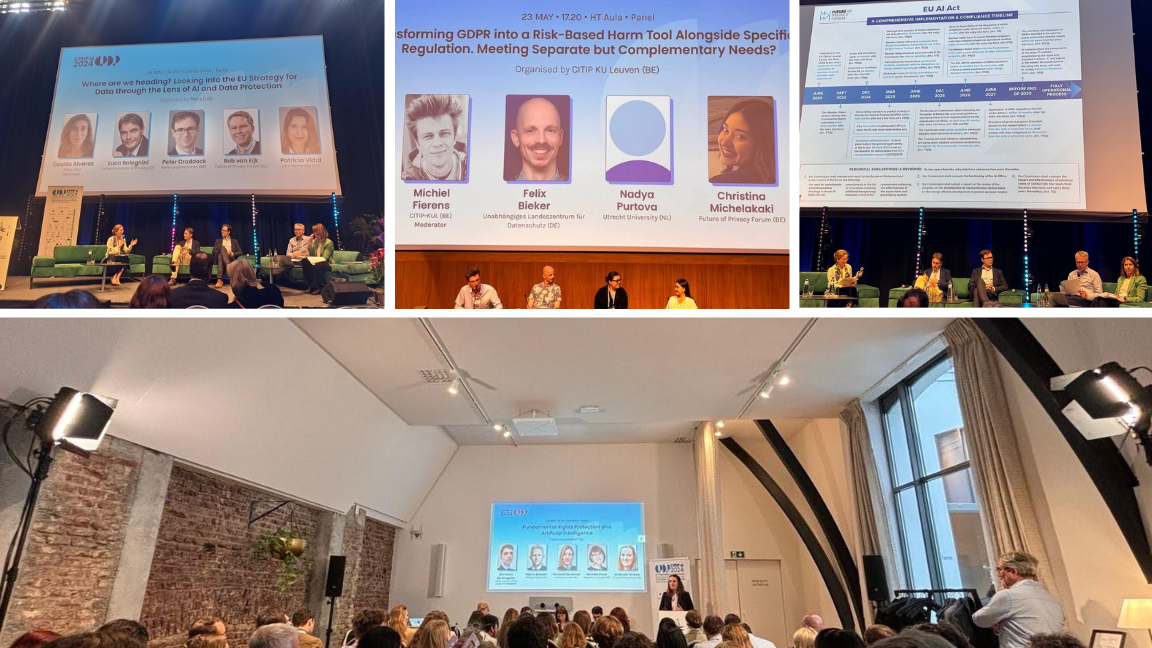
Reflections on California’s Age-Appropriate Design Code in Advance of Oral Arguments
Co-authored with Isaiah Hinton, Policy Intern for the Youth and Education Team Update: On Wednesday, July 17th, the U.S. 9th Circuit Court of Appeals heard oral arguments for an appeal of the District Court’s preliminary injunction of the California Age-Appropriate Design Code Act (AADC). Judges Milan Smith Jr., Mark Bennett, and Anthony Johnstone appeared interested […]

Comprehensive Privacy Anchors in the Ocean State
On June 25, 2024, Governor McKee transmitted without signature H 7787 and S 2500, the Rhode Island Data Transparency and Privacy Protection Act (RIDTPPA), making Rhode Island the nineteenth state overall and the seventh state in 2024 to enact a comprehensive privacy law. The law will take effect on January 1, 2026, and the majority […]

FPF at CPDP.ai 2024: From Data Protection to Governance of Artificial Intelligence – A Global Perspective
Drawing inspiration from the latest developments in assessing the impacts and regulation of Artificial Intelligence (AI) technologies, the Brussels-based annual Computers, Privacy and Data Protection (CPDP) conference amended its acronym. The 17th edition became CPDP.ai for Computers, Privacy, Data Protection and Artificial Intelligence conference, taking place on 22-24 May. To govern or to be governed, […]

Asia-Pacific
The Asia-Pacific Team FPF APAC is led by Josh Lee Kok Thong. Since its inception, FPF APAC has committed itself to the furthering of FPF’s global mission in the region, including to foster greater understanding, convergence, and interoperability of data protection and emerging technology regulation in the Asia-Pacific. Featured Asia-Pacific Focused Work Resources Global Offices FPF […]

Little Users, Big Protections: Colorado and Virginia pass laws focused on kids privacy
‘Don’t call me kid, don’t call me baby’ – unless you are a child residing in either Colorado or Virginia, where children will soon have increased privacy protections due to recent advances in youth privacy legislation. Virginia and Colorado both have broad-based privacy laws already in effect. During the 2024 state legislative sessions, both states […]

Setting the Stage: Connecticut Senate Bill 2 Lays the Groundwork for Responsible AI in the States
NEW: Read Tatiana Rice’s op-ed in the CT Mirror on SB2 Last night, on April 24, the Connecticut Senate passed SB 2, marking a significant step toward comprehensive AI regulation in the United States. This comprehensive, risk-based approach has emerged as a leading state legislative framework for AI regulation. If enacted, SB 2 would stand […]

The Old Line State Does Something New on Privacy
On April 6, the Maryland Senate concurred with House amendments to SB 541, the Maryland Online Data Privacy Act (MODPA), sending the bill to Governor Moore for signature. If enacted, MODPA could be a paradigm-shifting addition to the state privacy law landscape. While recent state comprehensive privacy laws generally have added to the existing landscape […]

China’s Interim Measures for the Management of Generative AI Services: A Comparison Between the Final and Draft Versions of the Text
Authors: Yirong Sun and Jingxian Zeng Edited by Josh Lee Kok Thong (FPF) and Sakshi Shivhare (FPF) The following is a guest post to the FPF blog by Yirong Sun, research fellow at the New York University School of Law Guarini Institute for Global Legal Studies at NYU School of Law: Global Law & Tech […]

FPF Celebrates 15 Years! Spring Social Marks Board Transition as Data Protection Leaders Toast to FPF’s Success
Leaders in Data Protection Take Center Stage at FPF’s Spring Social The week started with FPF’s 15th Anniversary Spring Social, where FPF CEO Jules Polonetsky thanked FPF’s Board Chair and Founder Chris Wolf, who served for 15 years, and welcomed FPF’s new Board Chair, Alan Raul. Three leading data protection regulators lauded FPF’s effectiveness in […]

Youth Privacy in Immersive Technologies: Regulatory Guidance, Lessons Learned, and Remaining Uncertainties
As young people adopt immersive technologies like extended reality (XR) and virtual world applications, companies are expanding their presence in digital spaces, launching brand experiences, advertisements, and digital products. While virtual worlds may in some ways resemble traditional social media and gaming experiences, they may also collect more data and raise potential manipulation risks, particularly […]
